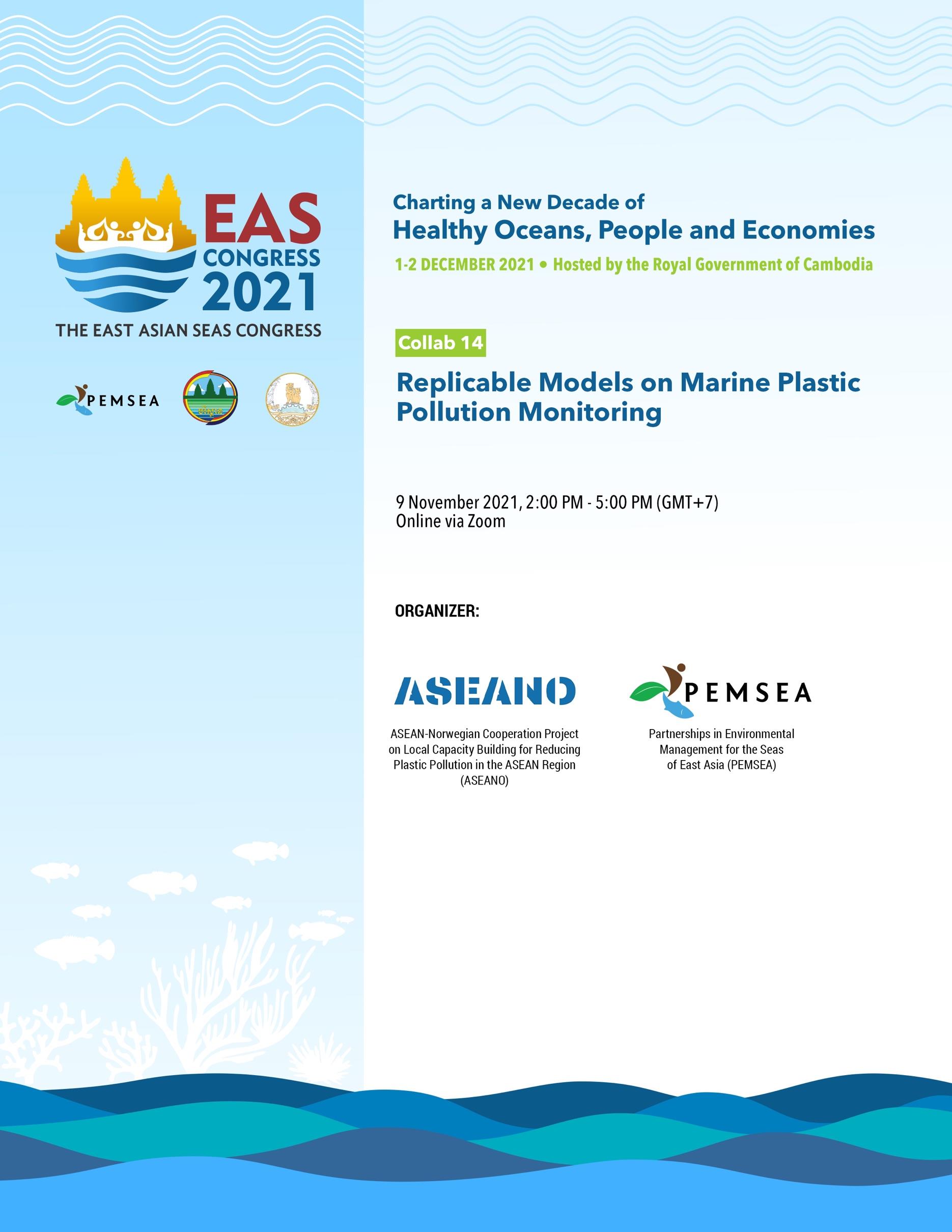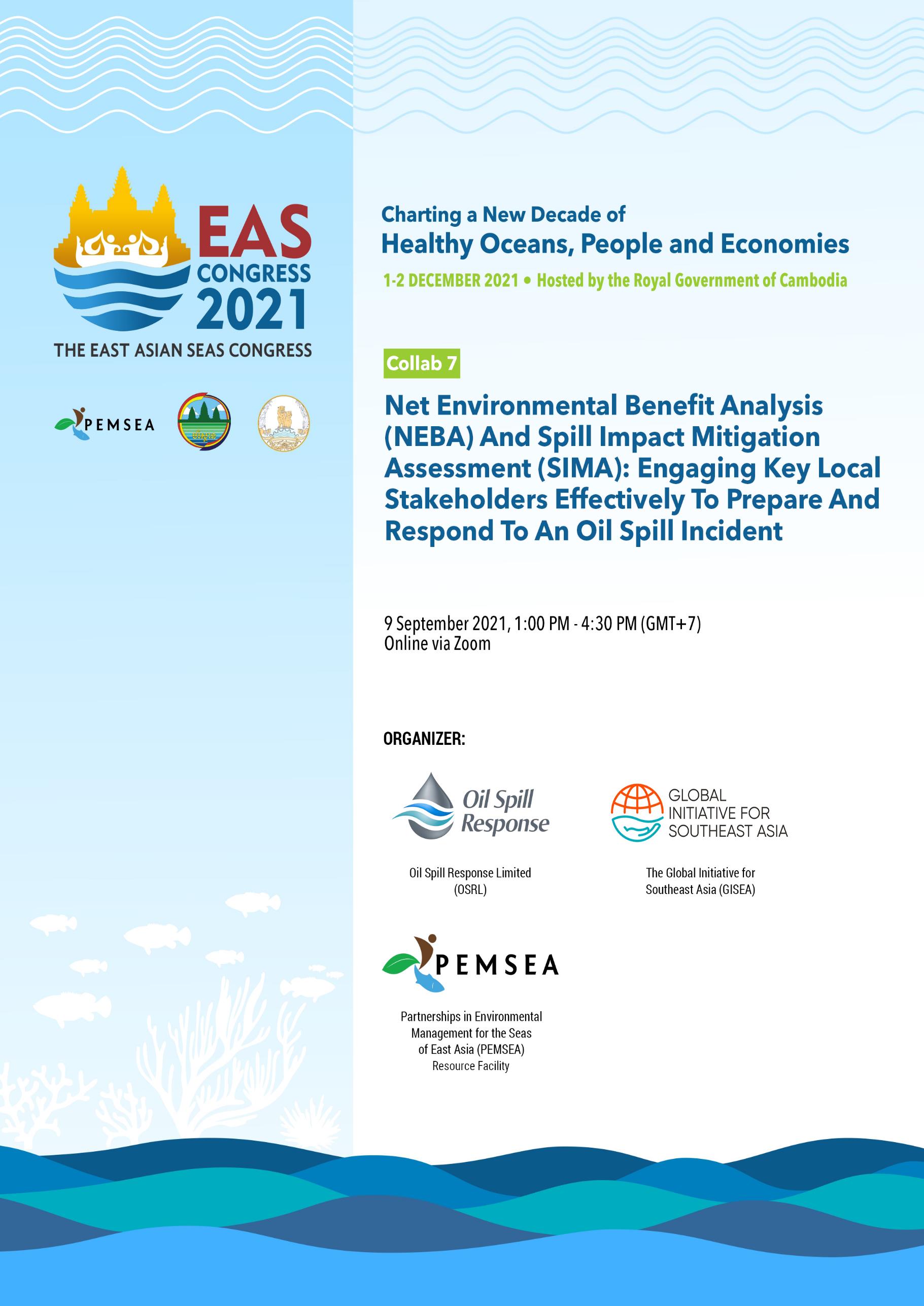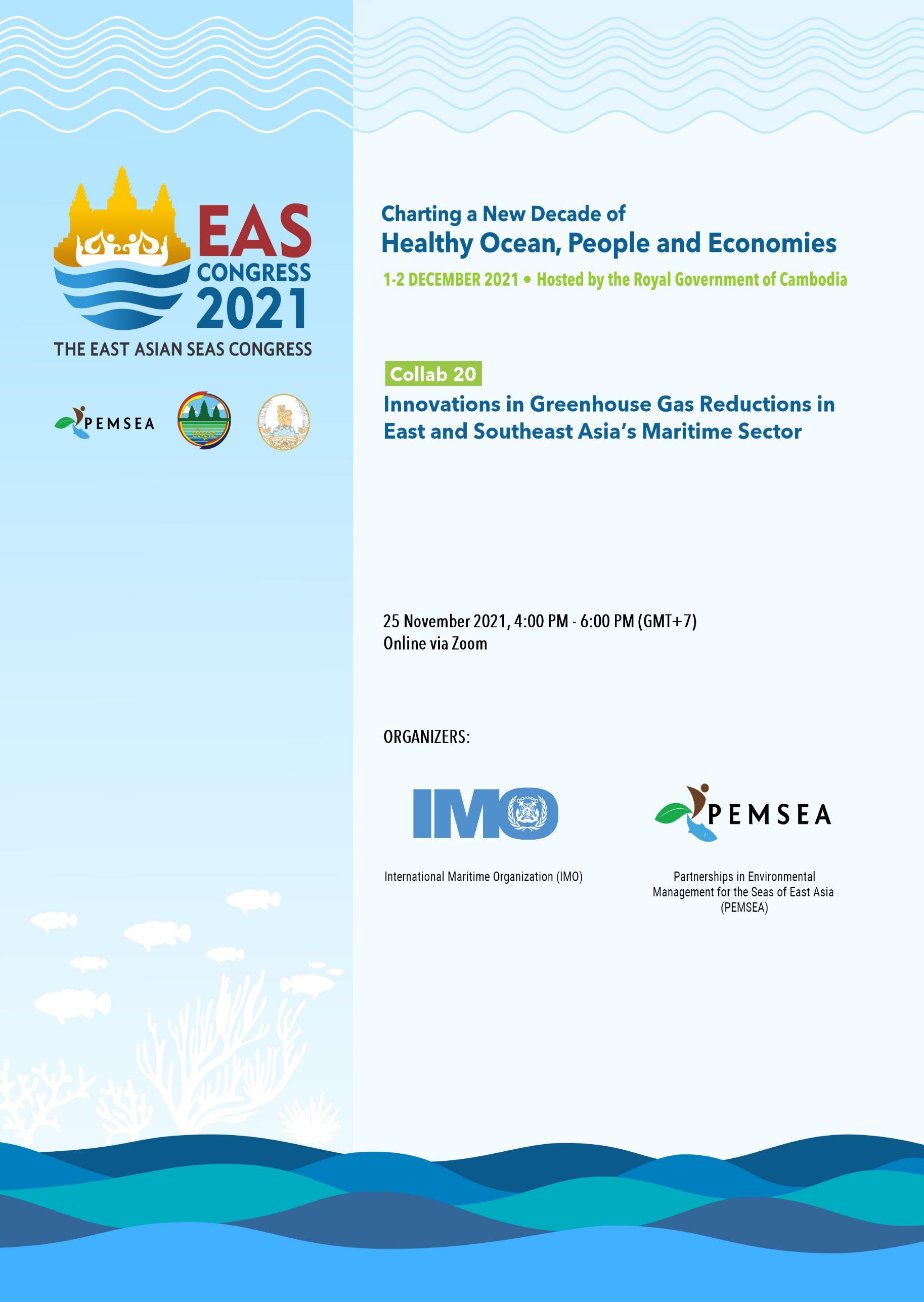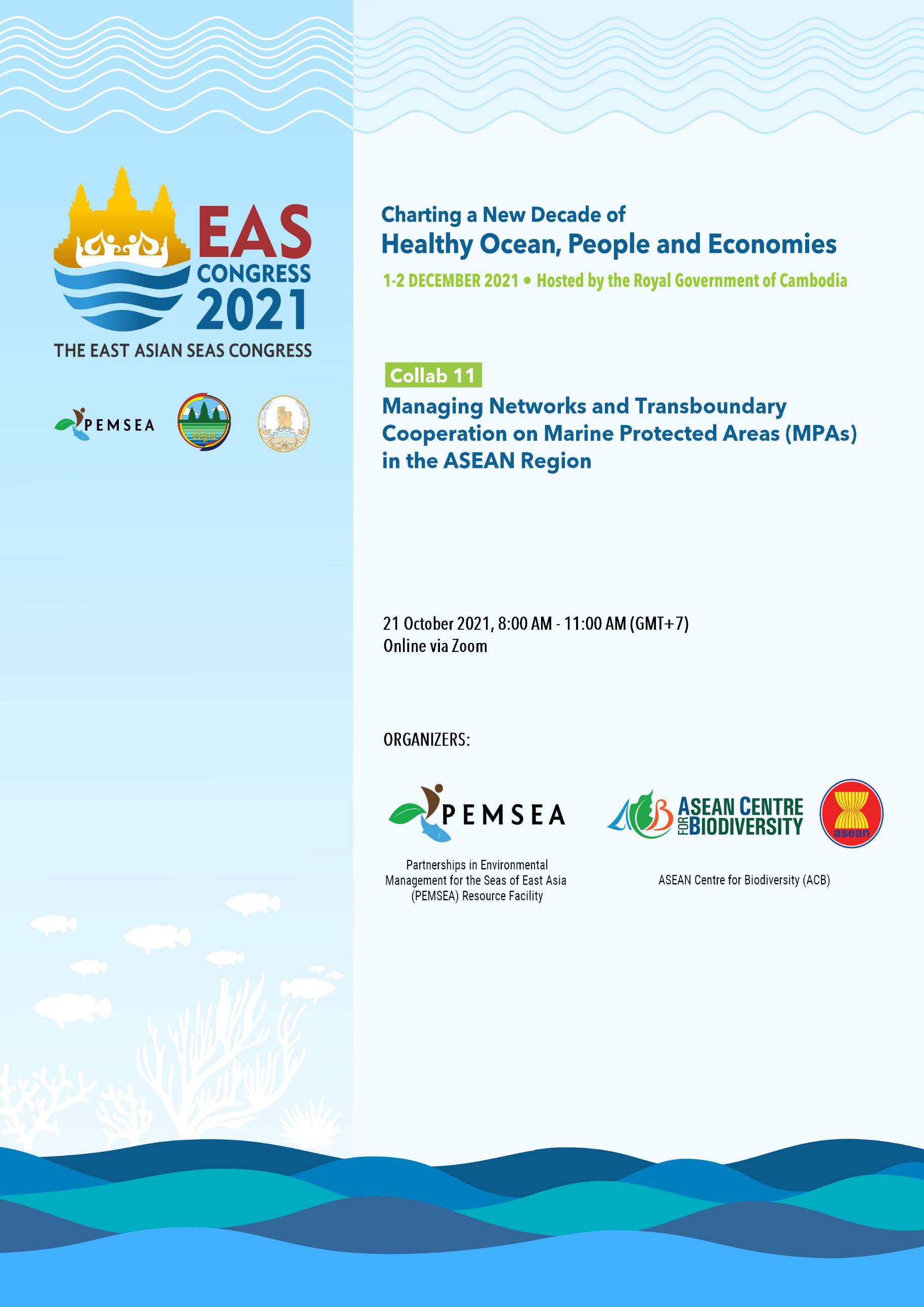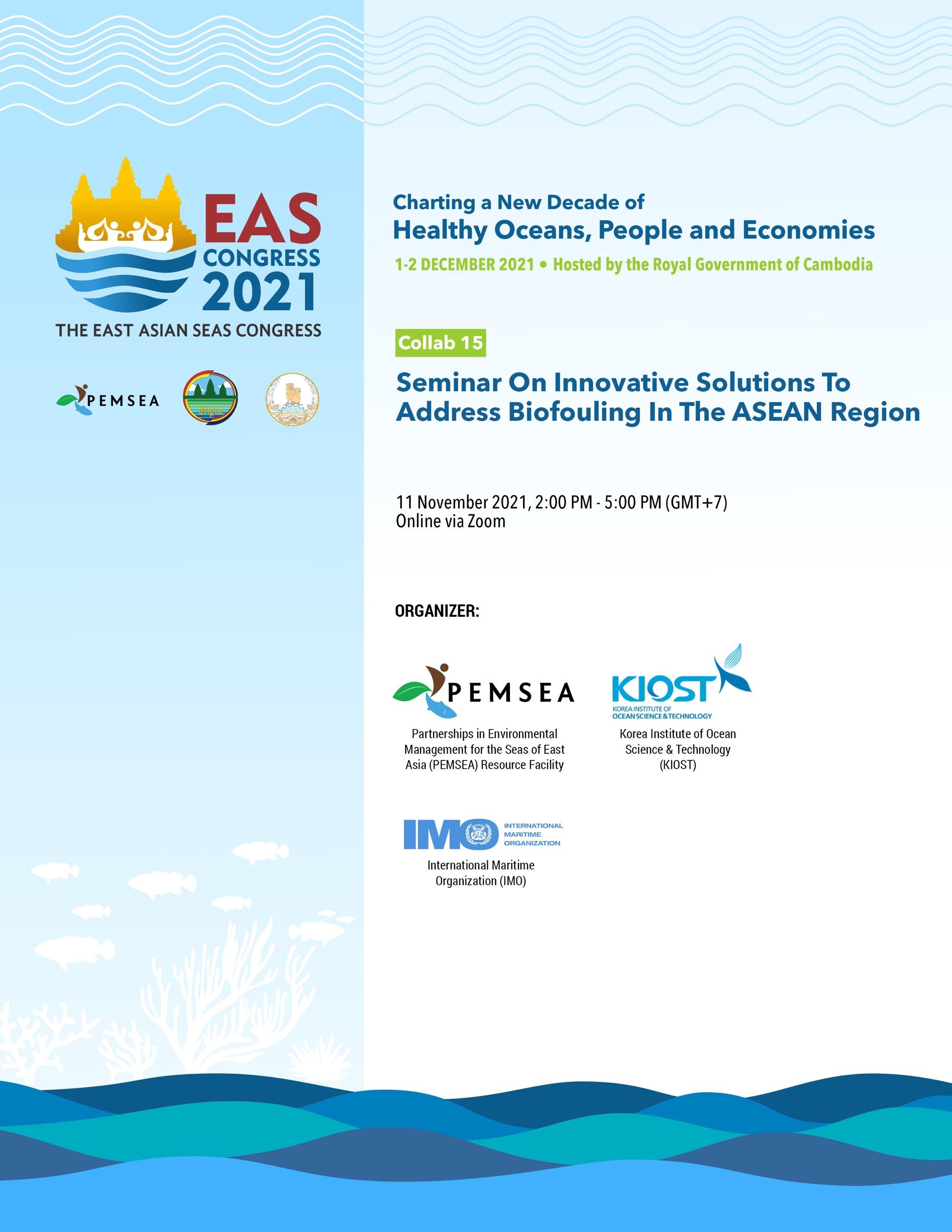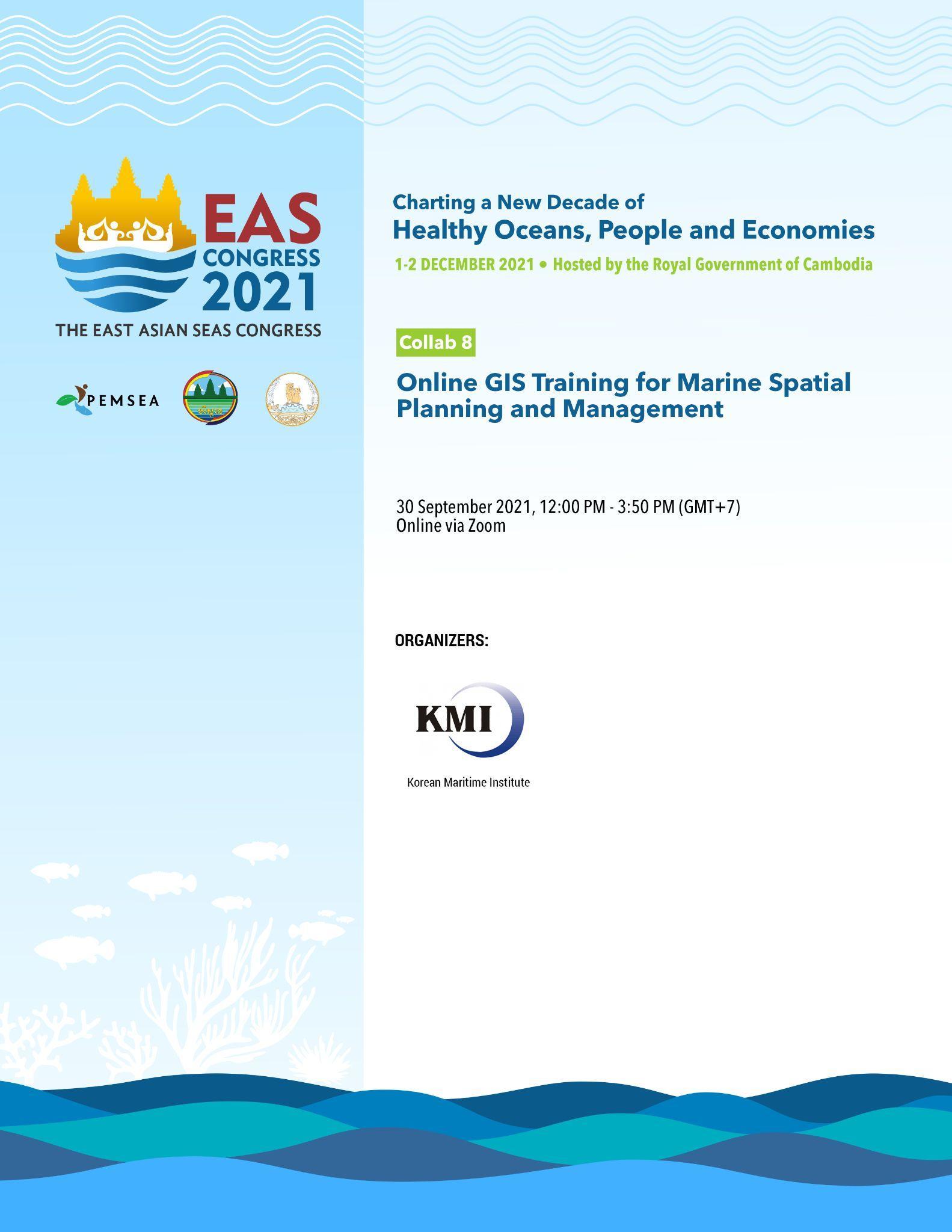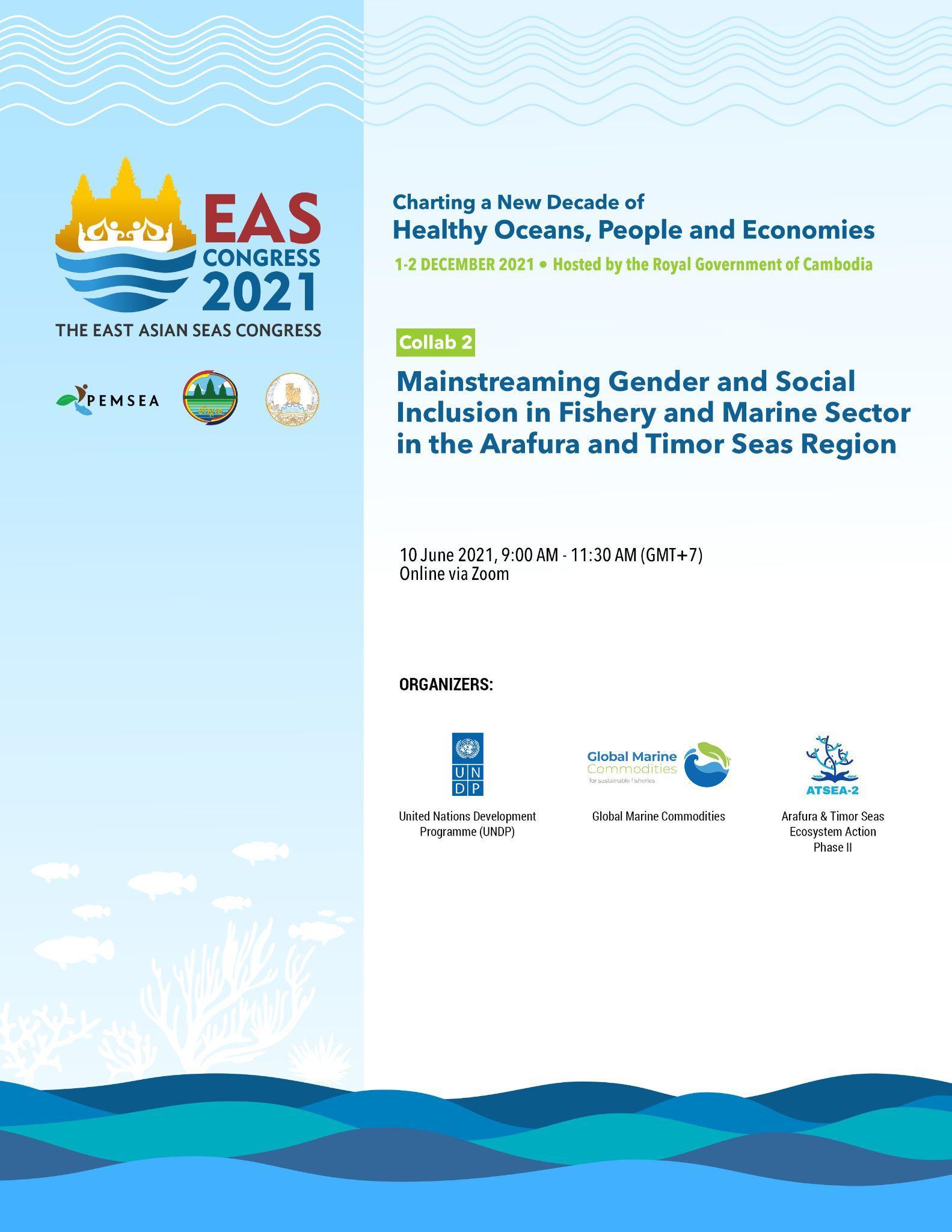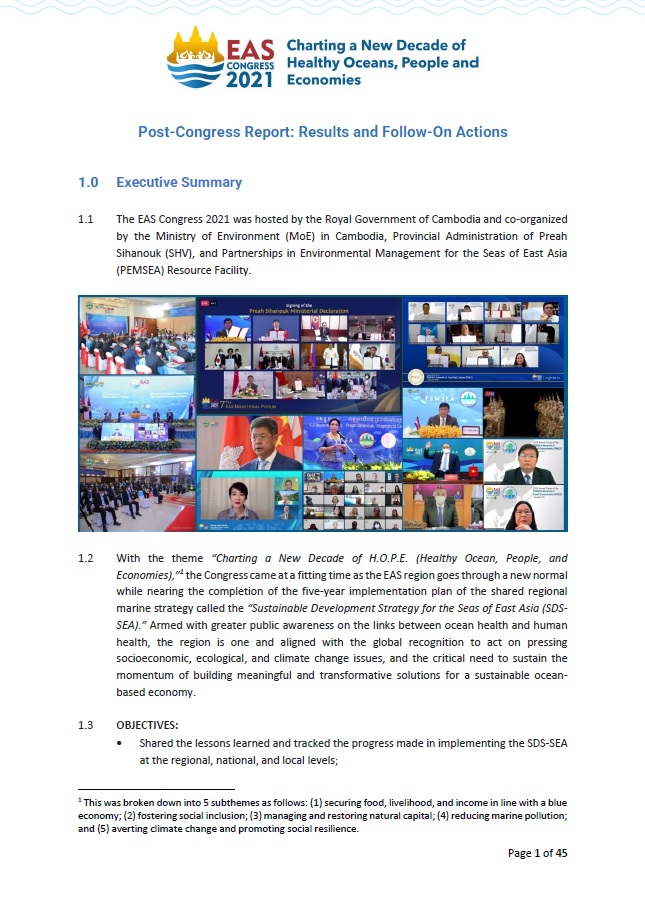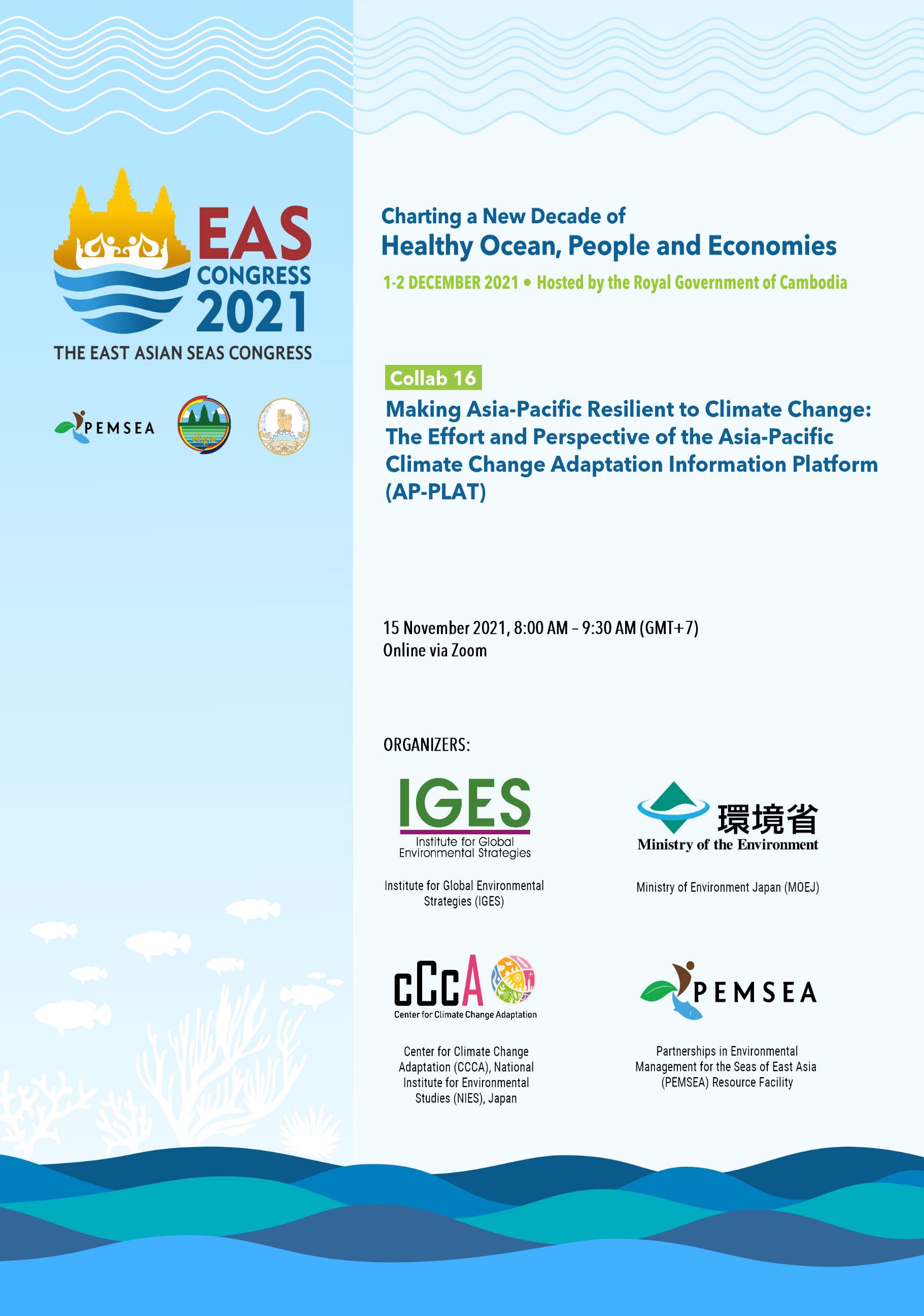
Breadcrumb
Collab 14: Replicable Models on Marine Plastic Pollution Monitoring
The issue of marine plastic pollution has become internationally prominent in both public and policy circles. Eight million tons enter the ocean annually and consumption is expected to increase. East Asia is reported to produce over half of the plastic waste entering the oceans according to a 2015 report by Ocean Conservancy. Recognizing the region’s role in the plastic pollution crisis, the Association of Southeast Asian Nations (ASEAN) issued the Bangkok Declaration on Combating Marine Debris in June 2019 to signify the commitment of ASEAN countries to take concrete actions and collaborate on preventing and significantly reducing marine debris, including plastic waste. The PEMSEA Network of Local Governments (PNLG) has also issued a declaration towards combating the issue (https://dev-pemseaorg.pantheonsite.io/publications/agreements-and-publications/pemsea-network-local-governments-sustainable-coastal). These statements include the application of scientific knowledge to combat marine debris, such as by monitoring to support science-based policy and decision-making.
Much plastic waste in the ocean originates from land, and therefore a ‘source-to-sea approach’ is needed to handle marine plastic pollution. Additionally, monitoring guidelines and tools must be properly configured to the local context based on institutional capacity and socioeconomic and environmental circumstances. In this regard, collaboration between different countries and communities is crucial for sharing best practices and practical yet innovative solutions to understand how they might be replicated or scaled-up in new areas.
This collab highlighted the lessons learned from the ASEAN-Norwegian Cooperation Project on Local Capacity Building for Reducing Plastic Pollution in the ASEAN Region (ASEANO), and from other efforts in the region to reduce the flow of plastic waste into the ocean. Various projects shared examples of approaches to understanding and tackling the monitoring of plastic pollution issues, while providing peer-to-peer knowledge sharing between presenters and attendees.
Collab 7: Net Environmental Benefit Analysis (NEBA) and Spill Impact Mitigation Assessment (SIMA): Engaging Key Local Stakeholders Effectively to Prepare and Respond to an Oil Spill Incident
As the largest international industry-funded oil spill response organization, Oil Spill Response Limited (OSRL) plays a significant role in the promotion of the use of industry good practices to prepare for and respond to any oil spill incidents, through engaging various key stakeholders which may be involved in an incident.
OSRL collaborated with Partnerships in Environmental Management for the Seas of East Asia (PEMSEA) and Global Initiative – South-East Asia (GISEA) to deliver a virtual workshop on Net Environmental Benefit Analysis (NEBA) and Spill Impact Mitigation Assessment (SIMA) to support the Gulf of Thailand (GoT) Cooperation.
Purpose of the workshop is to introduce the concept of Net Environmental Benefit Analysis (NEBA) and Spill Impact Mitigation Assessment (SIMA) as an engagement tool to understand impacts of oil spill to the local community, compare the benefits of different response strategies and thereby reducing the overall impact to cultural, ecological, and socio-economic resources during an oil spill incident.
This workshop was held from 2:00 PM to 5:30 PM on 9th Sept 2021 and consists of presentations, worked examples walkthrough and scenario-based discussions. Please refer to Annexes A and B for the workshop programme and link to the presentations, respectively.
The workshop was attended by thirty-six participants from the littoral states of GoT sub-region, namely Cambodia, Thailand, and Vietnam. The delegation was headed by the national contact points and was also well-represented by a diverse group of stakeholders to provide an alternative perspective to the NEBA/SIMA discussion. Please refer Annex C for the full list of participants.
A team of five resources speakers and moderator were headed by OSRL and GISEA, with technical support from PEMSEA.
Collab 20: Innovations in Greenhouse Gas Reductions in East and Southeast Asia’s Maritime Sector
Over the last decade, maritime transportation has grown to almost 90 percent global oversea trading logistics and correspondingly produces 3%-5% of the total global GHG emission. Sixty percent of this total trade volume passes through the seas and ports of Asia.
According to the Fourth GHG Study of the International Maritime Organization (IMO), GHG emissions of total shipping have increased from 977 million tonnes in 2012 to 1,076 million tonnes in 2018 (9.6 percent increase) mostly due to a continuous increase of global maritime trade. The Study projects that shipping emissions could increase to 90-130 percent of 2008 emissions by 2050, pointing out that it will be difficult to achieve IMO’s 2050 GHG reduction ambition (i.e., reduce the total annual GHG emissions from shipping by at least 50 percent) through energy-saving technologies and approaches alone (e.g., slow steaming and Just in Time arrivals, among others). Under all projected scenarios, by 2050 a large share of the total amount of CO2 reduction will have to come from the use of low-carbon/zero-carbon alternative fuels.
A shift to low-carbon/zero-carbon fuels and energy sources is not solely a shipping issue, but one that cuts across the maritime transportation, fuel, and energy systems, requiring collaborative efforts to address all the subsystems in an integrated manner encompassing, among others, ships, ports, hinterland transport, cargo handling and logistics, low- carbon fuel sources and distribution, renewable energy supply, IT/communication and information-sharing, and so on.
Collab 11: Managing Networks and Transboundary Cooperation on Marine Protected Areas (MPAs) in the ASEAN Region
The ASEAN Centre for Biodiversity (ACB), in collaboration with the Partnerships in Environmental Management for the Seas of East Asia (PEMSEA), conducted a virtual session entitled Managing Networks and Transboundary Cooperation on Marine Protected Areas (MPAs) in the ASEAN Region as one of the pre-congress events of the East Asian Seas (EAS) Congress. The session was held on 21 October 2021 and hosted and moderated by Ms. Antoinette Taus, Founder and Executive Director of Communities Organized for Resource Allocation (CORA).
The virtual session aimed to discuss the status and progress of transboundary management of coastal and marine biodiversity in the ASEAN region. In particular, it sought to highlight the various initiatives and collaborative actions on sustaining healthy coastal and marine ecosystems through transboundary cooperation such as:
a. the concept of transboundary management in the context of Large MarineEcosystems (LMEs) to mitigate biodiversity loss and maintain productive coastal andmarine environment in the region;
b. the transboundary approaches at site, national, and regional levels in managingcoastal and marine habitats for migratory species;
c. lessons learned, good practices, and future plans related to strengthening capacitiesfor the conservation and sustainable management of MPAs;
d. effective management of MPAs through science-based approaches including keyemerging issues affecting coastal and marine environment in the ASEAN, such asclimate change and marine litter; and
e. communication, education, and public awareness (CEPA) strategies to advocate issuesdrivers of biodiversity loss.
The session also zoomed in on transboundary management in relation to the achievement of national, regional, and global commitments such as the post-2020 global biodiversity framework (GBF), UN Sustainable Development Goal (SDG) 14, and Sustainable Development Strategy of the Seas of East Asia (SDS-SEA) implementation. These commitments will contribute to the Congress’s goal in establishing a roadmap on transformative blue solutions for the next decade. Thus, the session presented an opportunity to forge new collaborations and partnerships among the ASEAN Member States (AMS) in protecting its coastal and marine environment, especially in improving the management of MPAs.
Participants of the session were composed of local, national, and regional representatives from AMS, academe, research institutions, non-governmental organisations, development partners from the ASEAN region and beyond. The programme appears as Annex 2 to this document, while Annex 3 contains the list of participants and Annex 4 the links to the recording and presentation materials.
Collab 15: Seminar on Innovative Solutions to Address Biofouling in the ASEAN Region
The introduction and establishment of Invasive Aquatic Species (IAS) is considered as one of the threats to the biodiversity of the world’s freshwater, coastal and marine ecosystems. The global economic impacts of IAS, including disruption to fisheries, damage to coastal industry and infrastructure, shipping industry, tourism industry and marine ecosystem services, have been estimated at several hundred million dollars per year (IMO). The main vectors of the unintentional transfer of non-indigenous species are ships' ballast water, biofouling of mobile marine structures and aquaculture practices.
Biofouling is the accumulation of aquatic microorganisms, plants, algae, or small animals on the surfaces and structures immersed or exposed to the aquatic environment. Significant research during the last 20 years have confirmed that biofouling had been underestimated as a possible vector for non-indigenous species and may in fact be one of the main mechanisms for their introduction or expansion of species into new marine or freshwater habitats.
Improving or minimizing biofouling on ships has the added benefit of improving their energy efficiency. As a result, biofouling has been identified as one of the potential key resources that may contribute in the short term to the reduction of greenhouse gas emissions from the shipping industry.
In order to improve the management of biofouling, minimize its role as a potential vector for the introduction of IAS and help maritime industries to reduce their carbon footprint, the International Maritime Organization (IMO), the United Nations Development Programme (UNDP) and the Global Environment Facility (GEF) have launched the GloFouling Partnerships Project. The project includes a conscious effort to seek the expertise accumulated by the private sector, through the Global Industry Alliance (GIA) for Marine Biosafety, a cross-sectoral platform that brings together global industries from maritime, shipping, ocean energy, aquaculture and other ocean-based industries to help identify common difficulties and solutions, facilitate technology development and break barriers for its uptake with the ultimate goal of improved biofouling management.
As a follow-up seminar to a Regional Seminar on Biofouling Management and Invasive Aquatic Species in the East Asian Seas which took place in 23 June 2021, this collab which is part of a series of collabs under the East Asian Seas Congress 2021 focused at sharing the latest technology and research initiatives and discussed how they may help maritime industries to address issues related to biofouling, in support of the implementation of the IMO Biofouling Guidelines at the regional and national levels in the ASEAN region.
Collab 8: Online GIS Training for Marine Spatial Planning and Management
Korea Maritime Institute (KMI) has cooperated with East Asian countries and international entities to further sustainable ocean development and share knowledge and practices. Since marine spatial planning (MSP) through utilizing marine spatial information has been a great agenda for coastal countries of East Asia, the opportunity for deepened discussion on its tools and technologies has become greatly important.
Through this online training, KMI aims to share relevant experiences on MSP, particularly on the use of Geographic Information System (GIS). This training forms part of the ongoing East Asian Seas Congress 2021, hosted by Cambodia and co-organized by their Ministry of Environment, the Province of Preah Sihanouk, and Partnerships in Environmental Management for the Seas of East Asia (PEMSEA), and is expected to contribute to enhanced cooperation among experts of East Asian Countries.
The half-day workshop was organized to:
● To share knowledge upon the GIS technique and data utilized for MSP
● To discuss and suggest practical approaches to develop cooperation among experts of East Asian countries
Collab 2: Mainstreaming and Social Inclusion in Fishery and Marine Sector in the Arafura and Timor Seas Region
The Arafura-Timor Seas Ecosystem Action Program Phase 2 (ATSEA-2) Live Webinar of Mainstreaming Gender and Social Inclusion in Fishery and Marine Sector in the Arafura and Timor Seas Region was conducted via live YouTube on 10 June 2021.
Ms. Thea Arcella Bohol, ATSEA GESI Specialist, welcomed participants to the workshop on behalf of the ATSEA-2 project. Ms. Bohol informed that speakers and panelists of this webinar come from various areas of expertise, including government officials, civil society, the private sector, and research institutes. One hundred and fifty-four participants from different countries, including Indonesia, Timor Leste, the Philippines, Papua New, Australia, Cambodia, and Japan, attended the webinar. The webinar also celebrated World Ocean Day under the theme the ocean Life and Livelihood. This webinar response to the call for a more inclusive approach to reducing vulnerability in the fisheries and marine sector, particularly for women and minorities. The webinar seeks to answer how to apply further gender and social inclusion in the fisheries sector to ensure that minorities and women roles are appreciated and could also participate in sustainable fisheries marine management.
Ms. Yayan Hikmayani, S.Pi., M.Si. officially opened the event on behalf of the Ministry of Marine Affairs and Fisheries (MMAF). Ms. Hikmayani shared the gender discourse history since the early development in the seventies. In 1995, Indonesia issued presidential instruction no.9/1995 on mainstreaming gender in development. According to this regulation, gender should be an integral part of development processes to ensure men and women receive equal rights. The ministry has developed gender working groups and conducted several programs. The latest work was the development of the Gender Development Index (GDI) in 2020. The index can be used as the basis to examine men and women’s position in marine and fisheries sector and the formulation of future policies and regulations. Five panelists presented a wide range of gender and social inclusion issues, from the overall concept of GESI to GESI approach at the project level to the impact of Covid-19 on women and fisheries.
Ms. Yenny Widjaja of UNDP stressed the importance of gender mainstreaming. However, the social inclusion concept offers a more comprehensive approach to project implementation. Ms. Karen Hildahl of UNDP pointed that ideally, there should be more than one focal point at the project level to fully incorporate gender into project day-to-day activities. Ms. Kusni Setyowati, Director of PT. Kelola Laut Indonesia provides an insight into private sector experience in working with the community including women in fisheries product processing. Proper procedures and hygiene training should be provided due to the fragility of fisheries products.
Mr. Dedi Supriadi Adhuri of Research Center for Society and Culture, Indonesian Institute of Sciences suggested that a project can achieve better results when working with women organizations compare to working on an individual level. Participation of women, men, and minority is vital in any decision-making, and access is available to related resources to ensure an inclusive process. There should also be an increased awareness on cross-sectional of gender, climate change, and marine protection.
Post-East Asian Seas Congress 2021 Report: Results and Follow-On Actions
The EAS Congress 2021 was hosted by the Royal Government of Cambodia and co-organized by the Ministry of Environment (MoE) in Cambodia, Provincial Administration of Preah Sihanouk (SHV), and Partnerships in Environmental Management for the Seas of East Asia (PEMSEA) Resource Facility.
Collab 16: “Making Asia-Pacific Resilient to Climate Change: The Effort and Perspective of the Asia-Pacific Climate Change Adaptation Information Platform (AP-PLAT)”
The risk of extreme climate-related disasters is expected to increase further due to climate change. Severe impacts of climate change on our nature and society have already been observed globally and locally. Thus, taking steps toward adaptation is crucial to mitigate and avoid such impacts.
The Asia-Pacific Climate Change Adaptation Information Platform (AP-PLAT) was established at the G20 summit in 2018 in Japan with the vision of nurturing countries in the Asia-Pacific
Region to build climate-resilient and sustainable society through science-based climate adaptation strategies and measures, risk-informed decision making, and pragmatic capacity building. The mission of AP-PLAT is to provide an enabling environment for climate-risk informed decision making and bankable adaptation actions through synchronizing and harnessing best available existing efforts on climate adaptation among partner countries and organizations.
This session will present the latest scientific findings and capacity building contents provided by AP-PLAT, which will be useful for making the region more resilient to climate change, especially in the Asian basins and coastal areas covered by PEMSEA. It will also discuss how synergies can be created through the partnership between AP-PLAT and PEMSEA, as well as the role of IGES as the PEMSEA Regional Center of Excellence (RCoE) in Climate Change
Adaptation and Disaster Risk Reduction and the promoter of capacity building activities in APPLAT.
In the session, introduction of useful scientific tools and online capacity building services available in AP-PLAT will be presented. Finally, the discussion on the future possible collaborations between AP-PLAT and PEMSEA among all the panels and audiences will be conducted.
The event aimed to:
a. To understand the current and future challenges caused by climate change in the Asia-Pacific.
b. To introduce useful scientific tools available in AP-PLAT website and how those tools are used for the development of adaptation measures in the region.
c. To introduce some of the latest online capacity development contents available in APPLAT, such as encountering compound risks, and understanding ISO standard related to climate change adaptation.
d. To discuss the opportunities of building partnership between AP-PLAT and PEMSEA, as well as the role of IGES as the RCoE and the promoter of capacity building activities in AP-PLAT.
